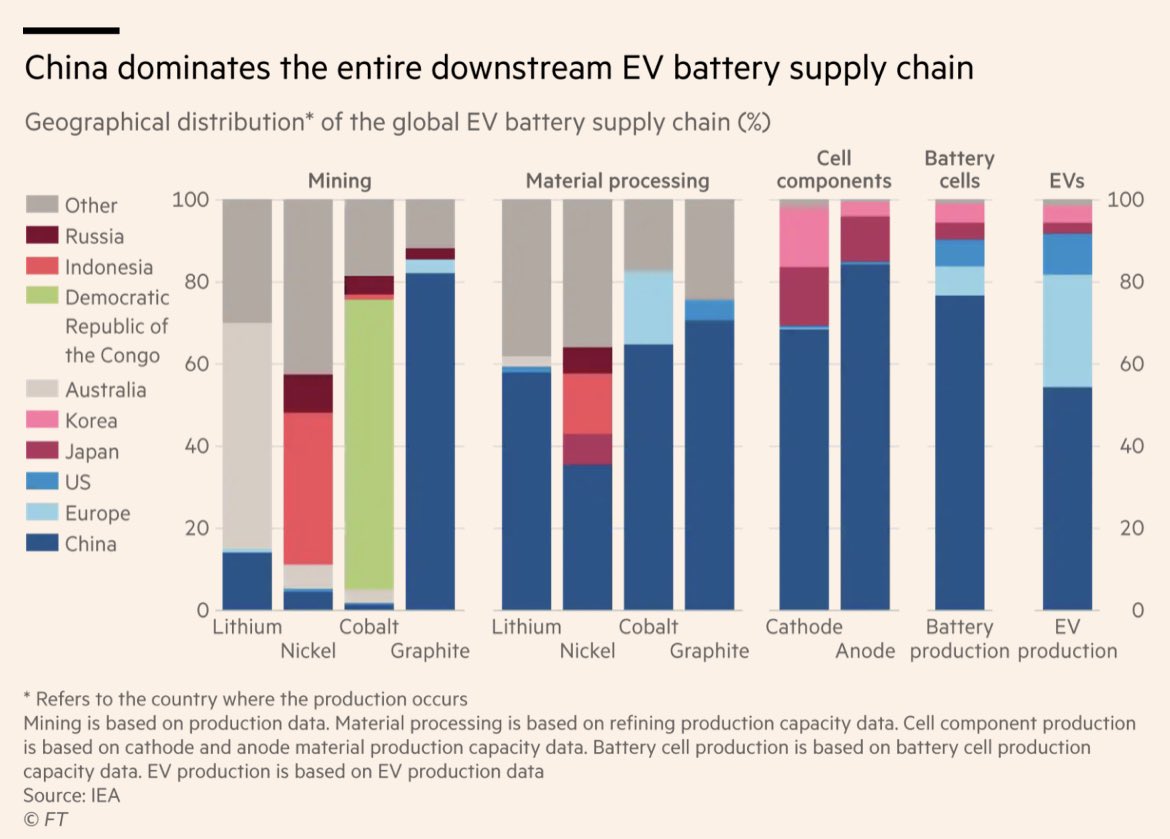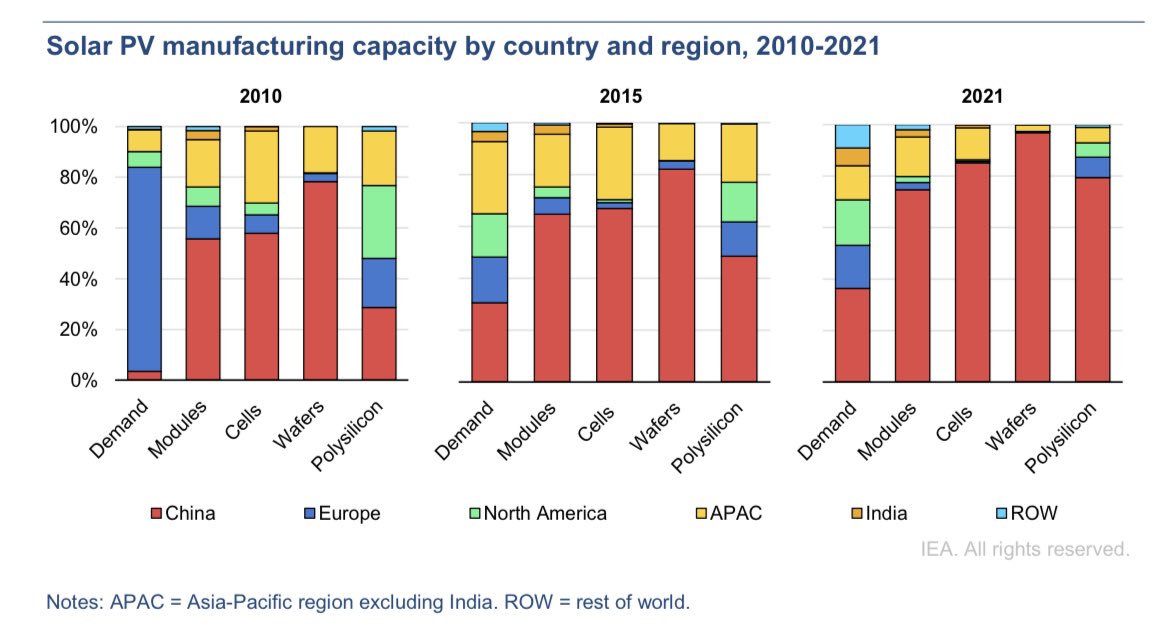China is now a major science & tech superpower, with huge consequences for political, economic & military power.
Below is a 🧵on this dynamic from supercomputing to AI to quantum to green energy.
cc: @erikbryn @paulg @Noahpinion @amcafee @ramez @scmallaby @wolfejosh
Below is a 🧵on this dynamic from supercomputing to AI to quantum to green energy.
cc: @erikbryn @paulg @Noahpinion @amcafee @ramez @scmallaby @wolfejosh
China’s total spending levels on R&D have surpassed Europe, are dramatically higher than Japan and rival the spending levels in the US. 2/25 
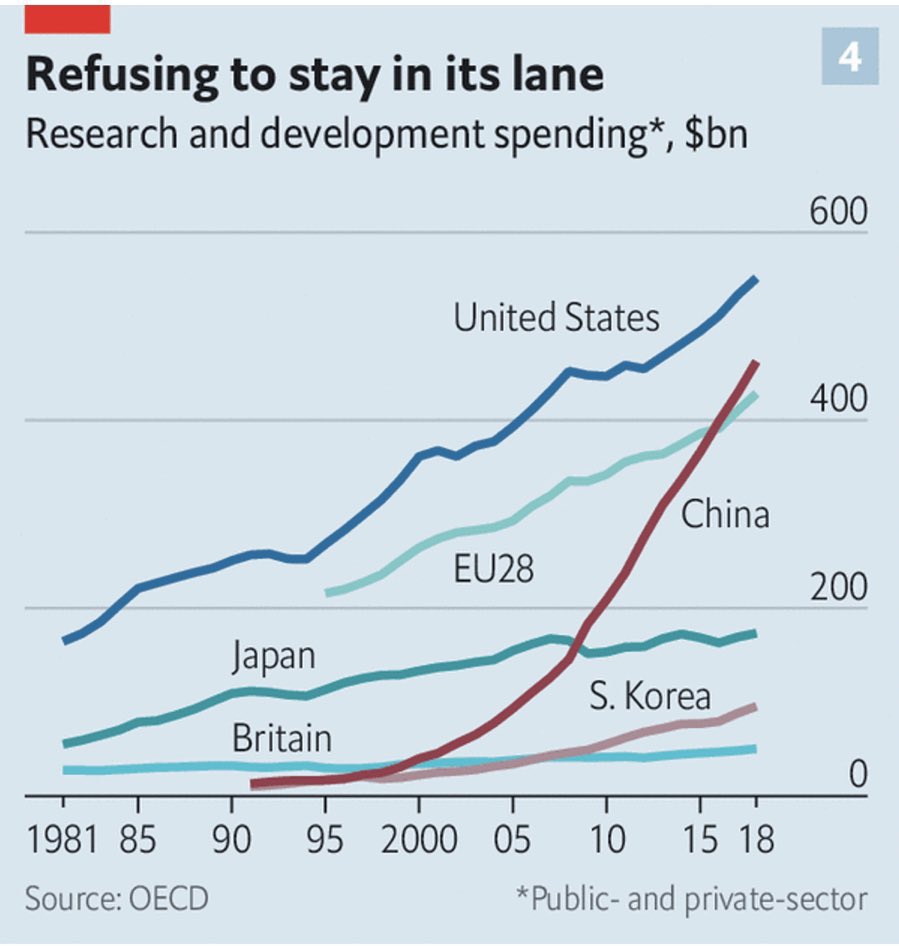
China is now essentially in a head-to-head race with the US in terms of R&D spending, a dramatic change in just two decades. 3/25 
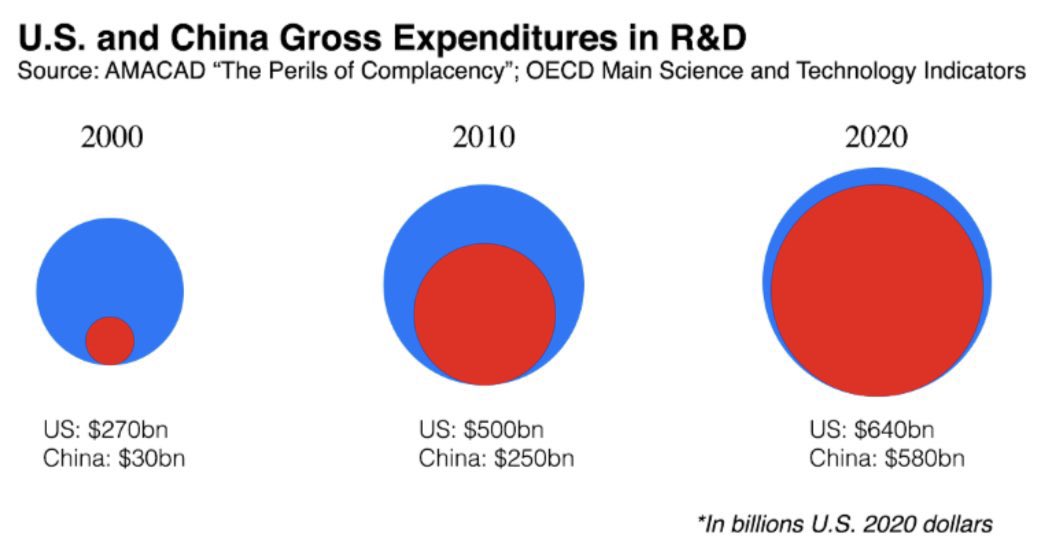
Most observers dramatically UNDERESTIMATE how good the best Chinese universities have become, especially in STEM education. 4/25 
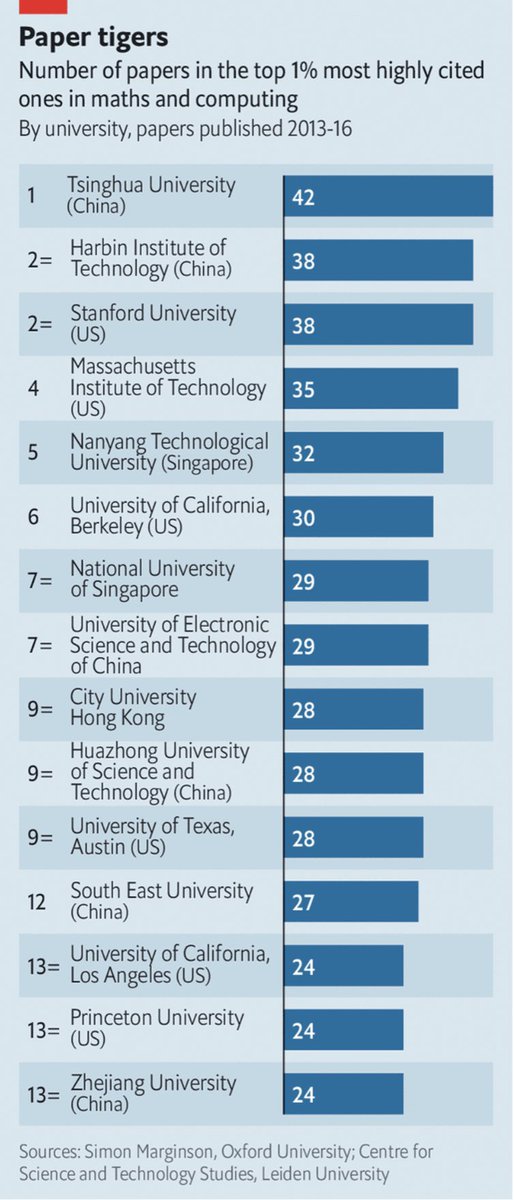
This has been achieved through a focused multi-decade government commitment, including through a systematic rise in government spending, both nominally and as a percentage of GDP. 5/25 
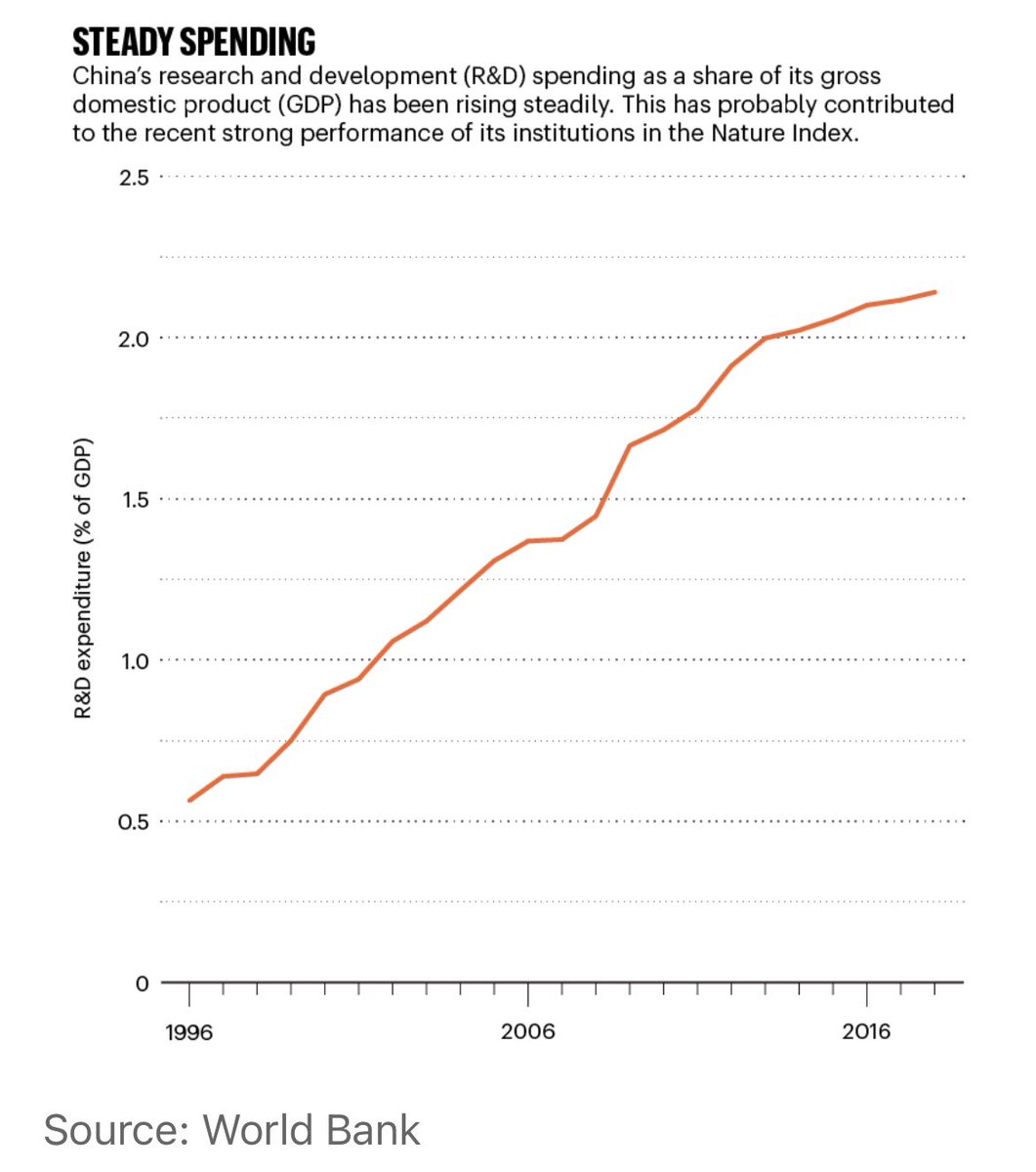
Rising spending has contributed to China’s rise as a scientific superpower. China is now second to the United States in the Nature Index ranking, a widely-cited measure of high quality scientific publications by country. 6/25 
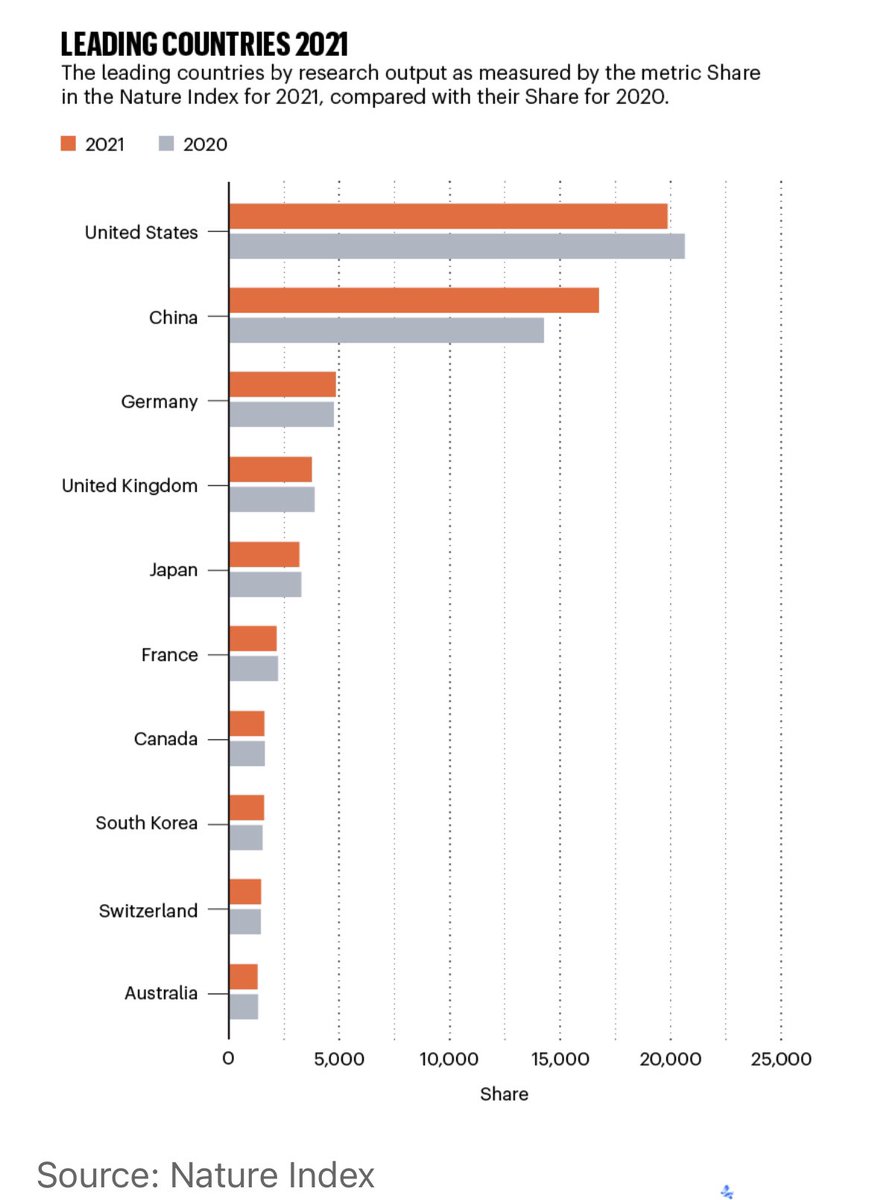
And Chinese institutions like Peking and Tsinghua now rank alongside the top Western institutions like Harvard, Stanford and MIT in the Nature Index (both Chinese institutions are now ahead of Oxford and Cambridge, for example). 7/25
nature.com/nature-index/a…
nature.com/nature-index/a…
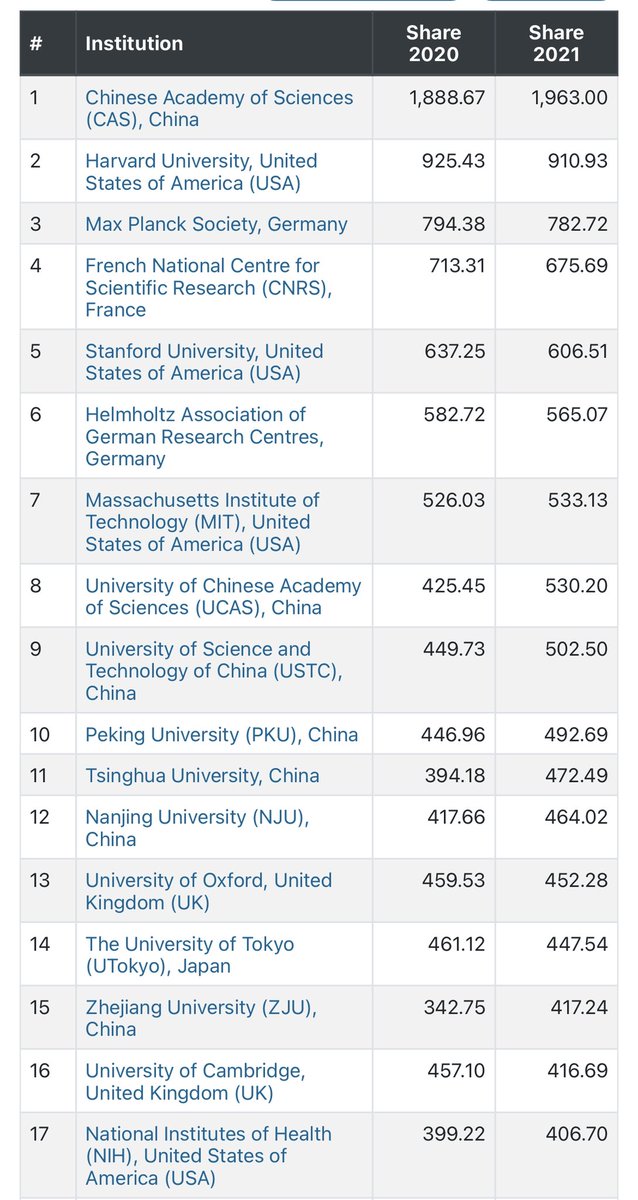
Rising scientific and engineering prowess has led to rising innovation capability. Beijing is now arguably the world’s second leading startup capital, and China has the second highest number of unicorns including the world’s most valuable private company (ByteDance). 8/25 

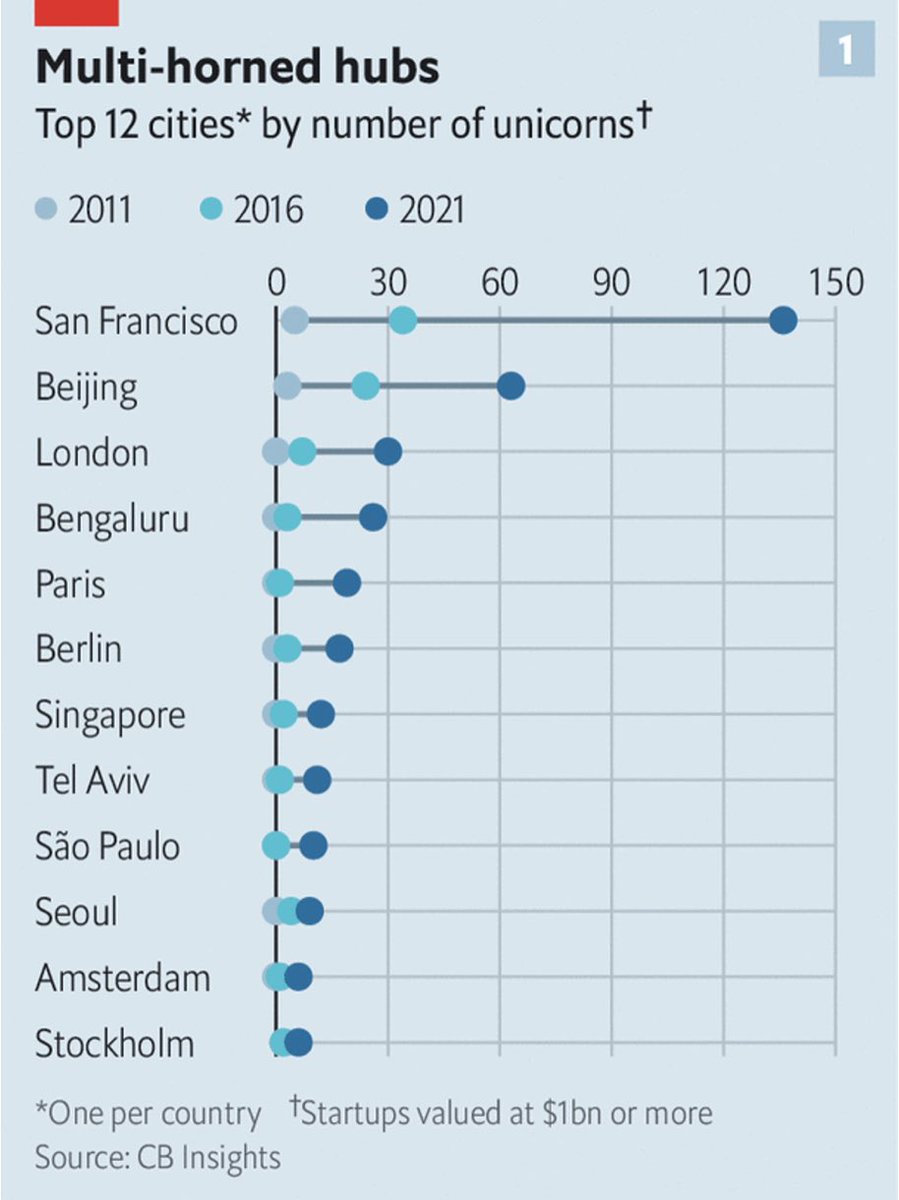
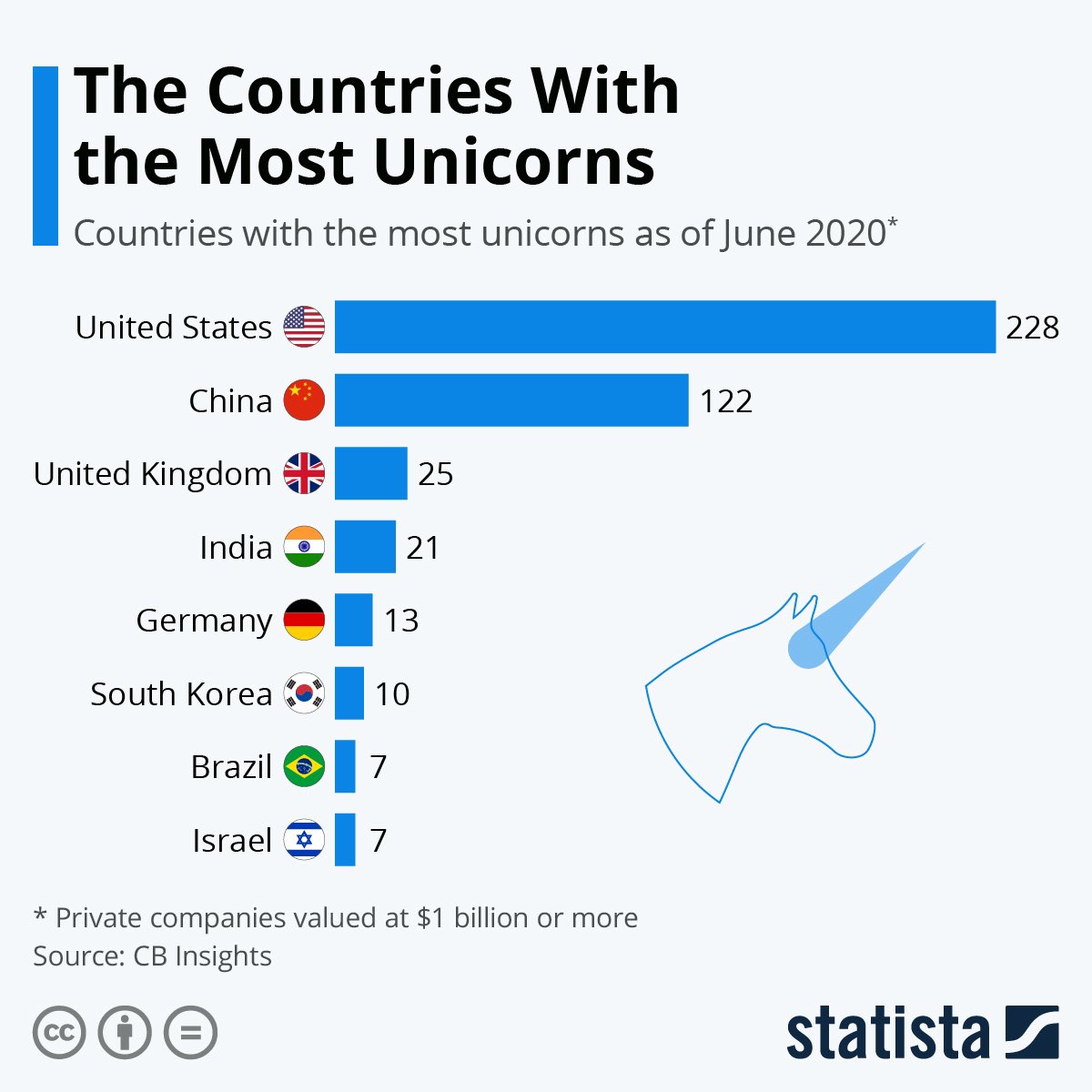
“China already has more supercomputers on the Top 500 list of the world’s most powerful computers than any other country — 186 compared with 123 in the US.” 9/25
ft.com/content/9ec4c0…
ft.com/content/9ec4c0…
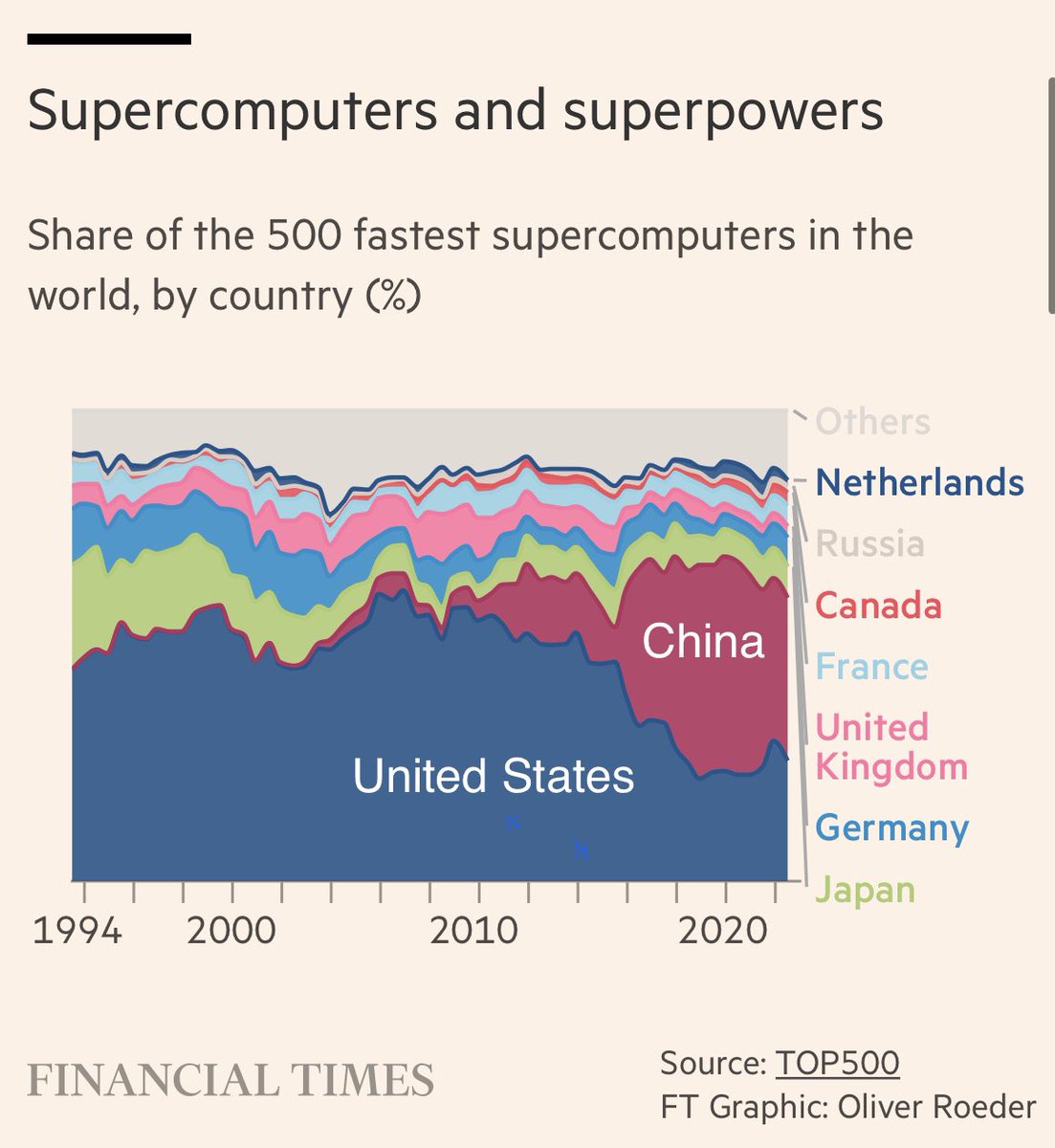
In terms of the battle for AI supremacy, China now publishes more overall papers on the artificial intelligence than any other country, though US and EU/UK papers are still cited more often. 10/25
hbr.org/2021/02/is-chi…

hbr.org/2021/02/is-chi…
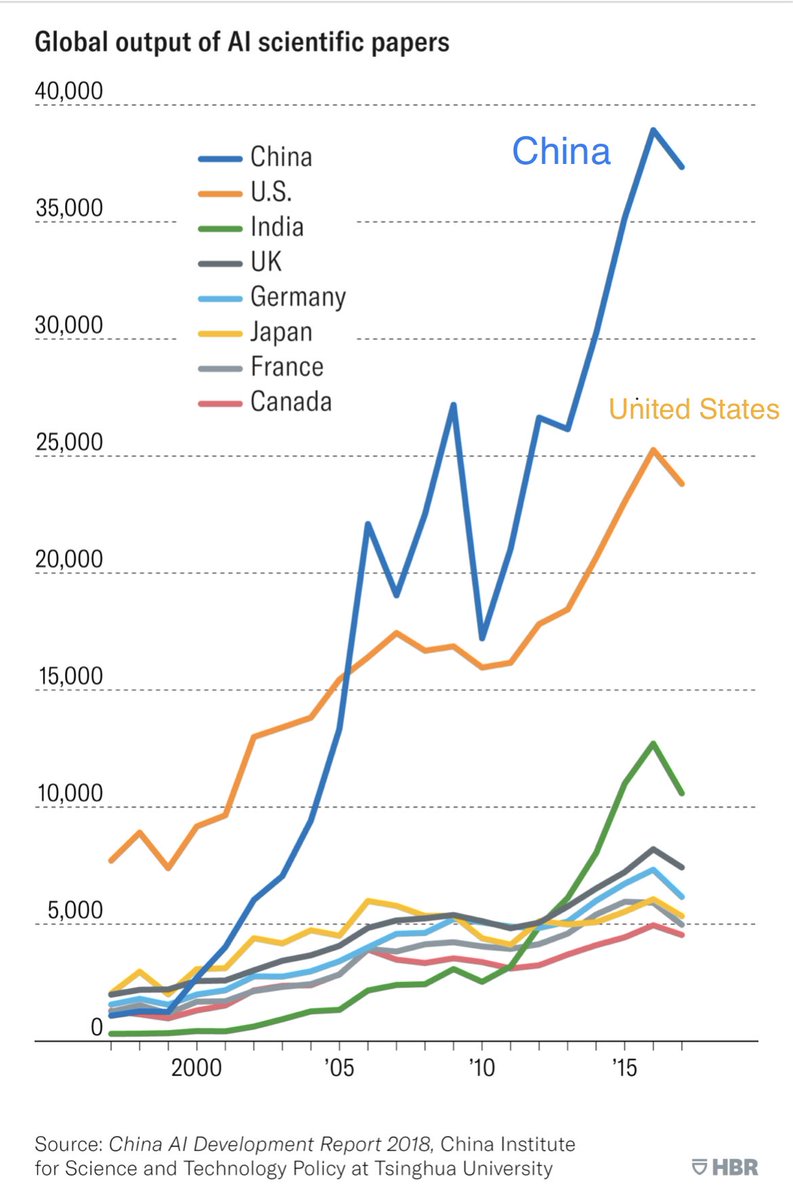
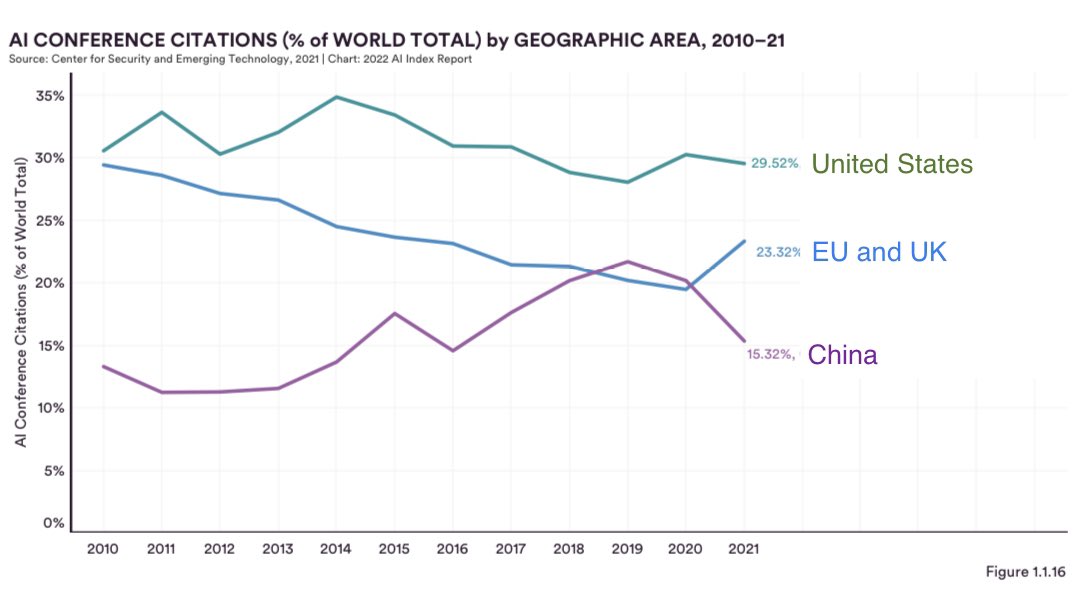
The US still has a dominant lead in terms of private investment in AI, but China is in the game and far surpasses the EU or any other player. 11/25 
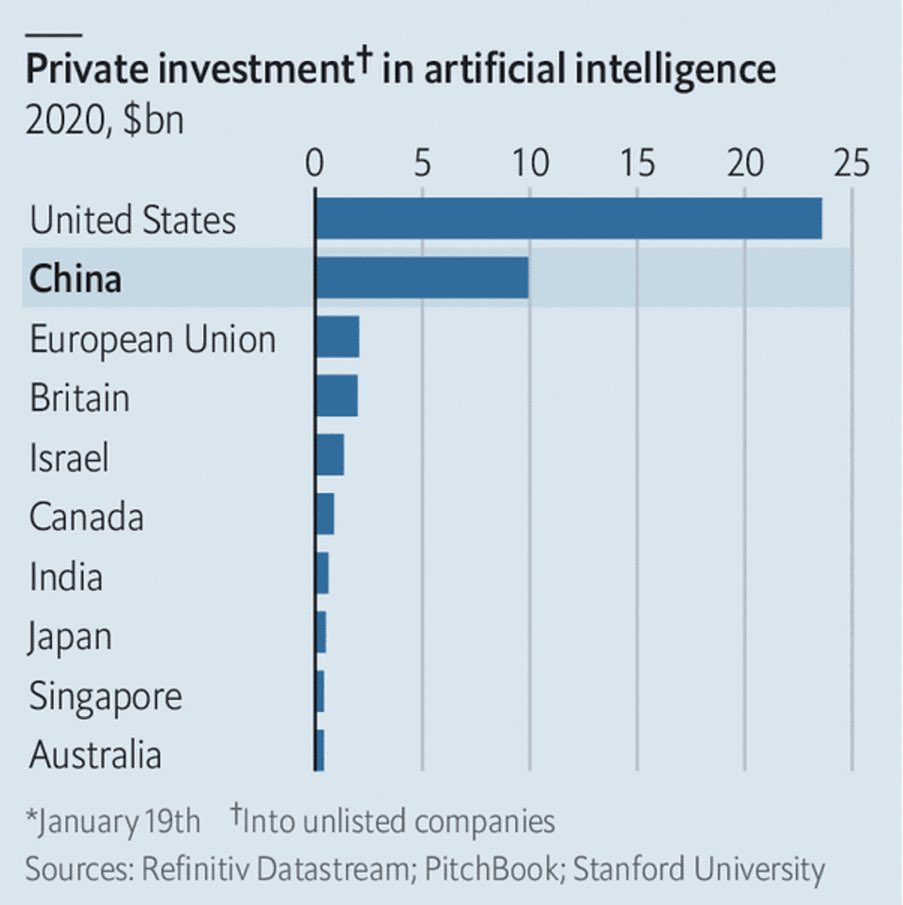
China is also highly active and has advanced research efforts underway in the emerging fields of quantum computing and communications, domains with enormous implications for national security (think code breaking and advanced sensors). 12/25 
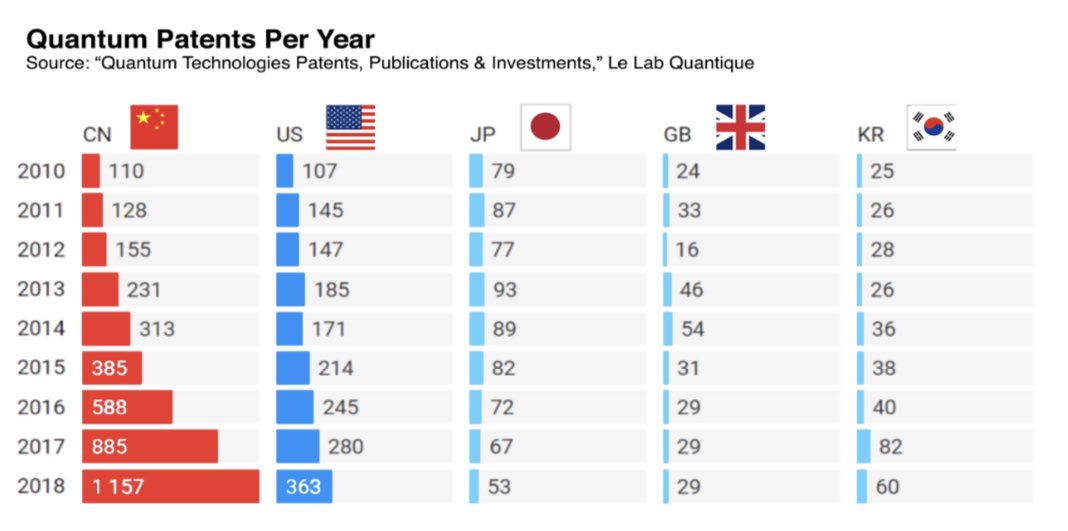
China’s pharma and biotech sectors have gone from near non-existent 15 years ago to exploding with growth and optimism. 13/25
mckinsey.com/industries/lif…

mckinsey.com/industries/lif…
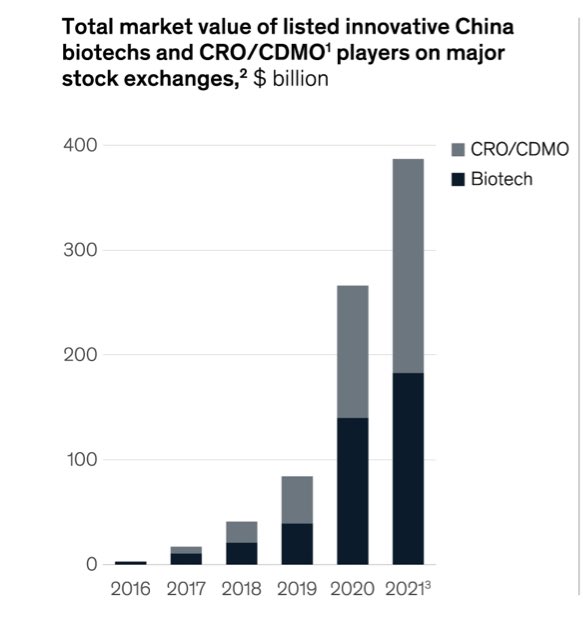

Western companies like Moderna and BioNTech have dominated mRNA technology, but China is now in the game. 14/25
nature.com/articles/d4158…
nature.com/articles/d4158…
Even in the critical new domain of CRISPR and gene editing technologies more generally, which were discovered in labs in Berkeley and Paris, China is now a major scientific player. 15/25
belfercenter.org/sites/default/…
belfercenter.org/sites/default/…
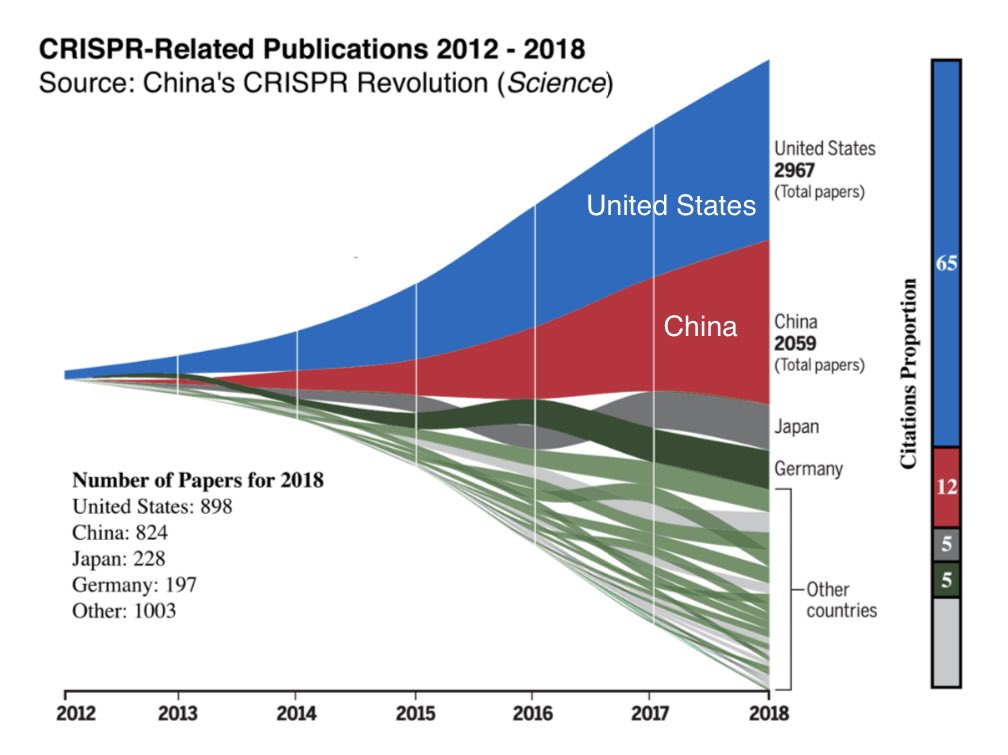
In green technologies, China is fairly dominant across multiple domains. 16/25
belfercenter.org/sites/default/…
belfercenter.org/sites/default/…
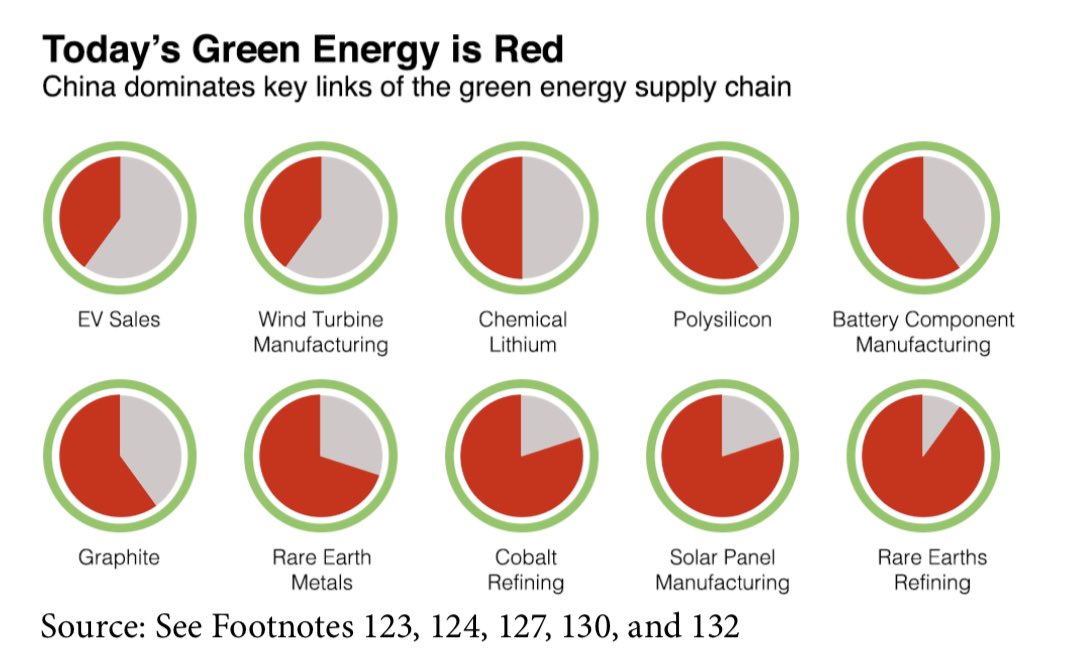
In semiconductors, the situation is more complicated. China is rapidly growing as a manufacturer and assembler of semiconductors with forecasts suggesting it may be the largest total producer by the end of the decade. 19/25
belfercenter.org/sites/default/…
belfercenter.org/sites/default/…
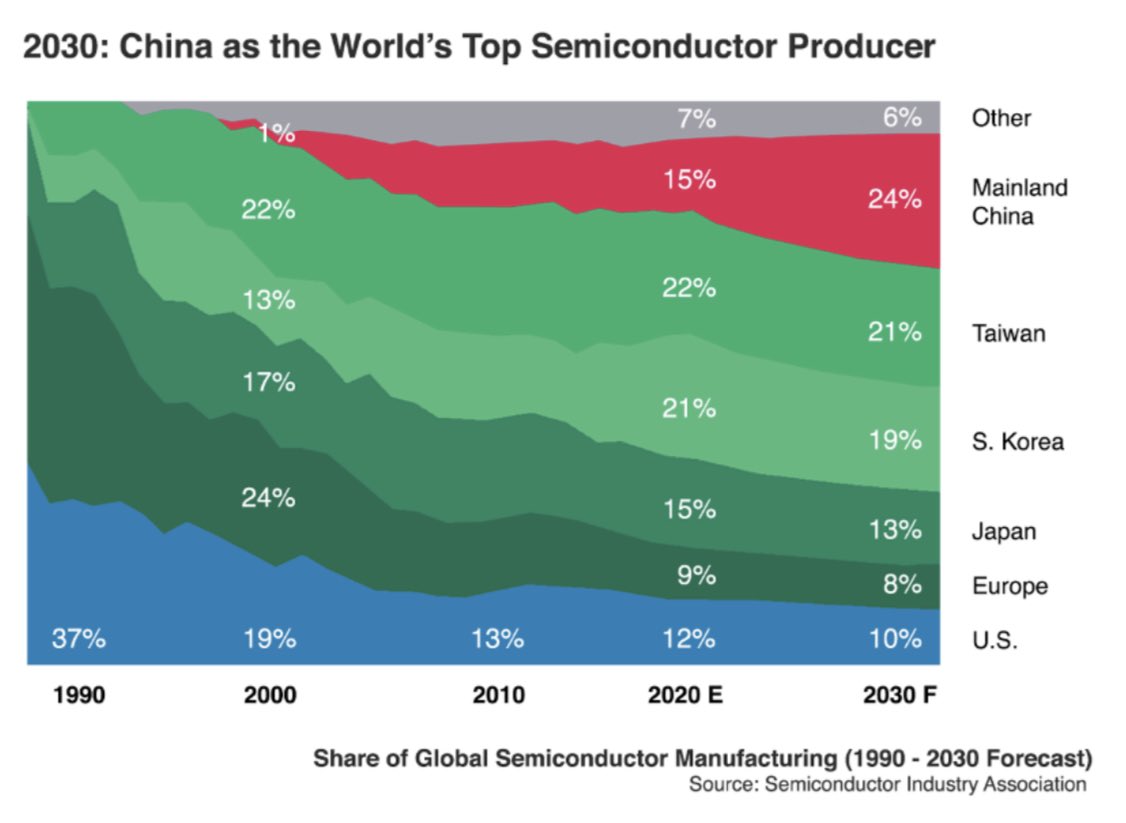
But Chinese semiconductor leaders like SMIC are still largely shut out of the most advanced fabrication nodes, which are dominated by Taiwanese (TSMC) & South Korean (Samsung) companies (reports that SMIC is producing 7nm chips should be treated with skepticism). 20/25 
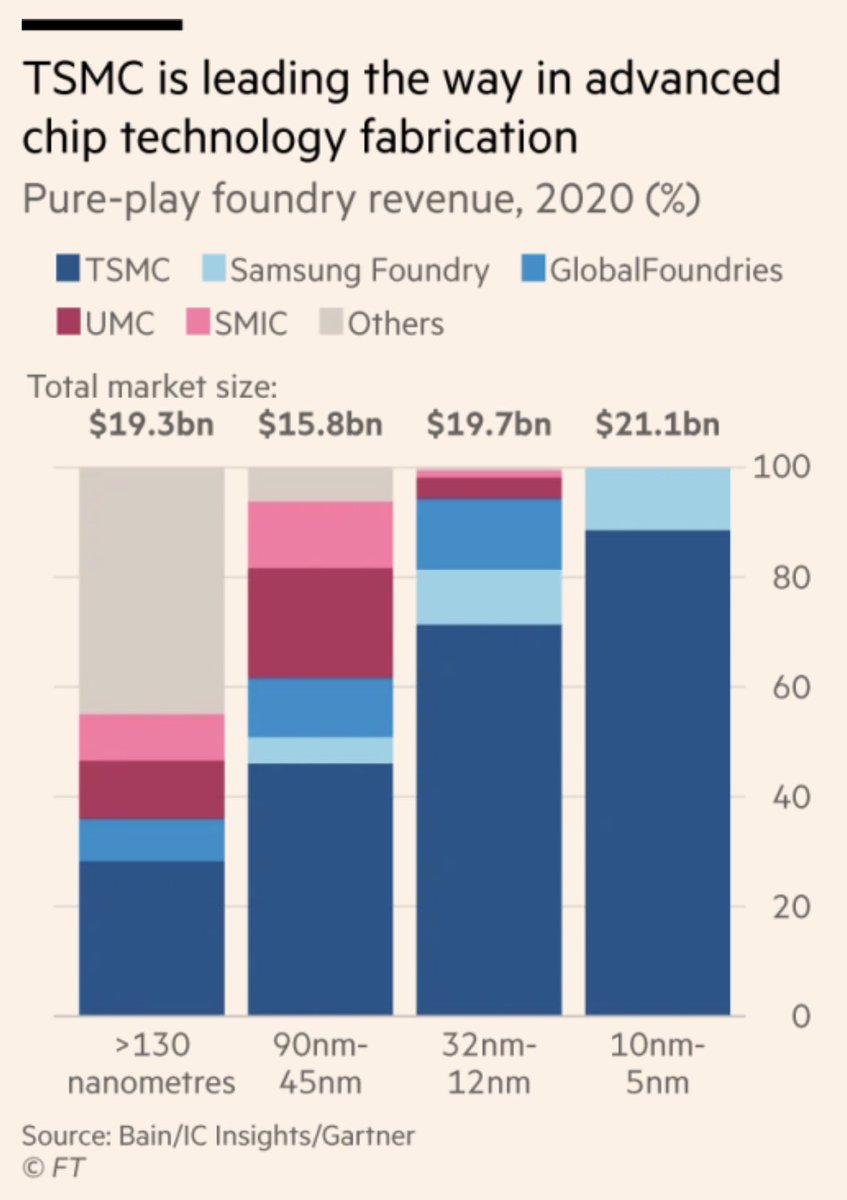
At the same time, China is a bit player in key semiconductor supply chain domains like equipment (ASML), design (Nvidia, AMD) and software (Cadence, Synopsys). The USG is working hard to prevent China access to these advanced technologies. 21/25
ft.com/content/64e8c7…
ft.com/content/64e8c7…
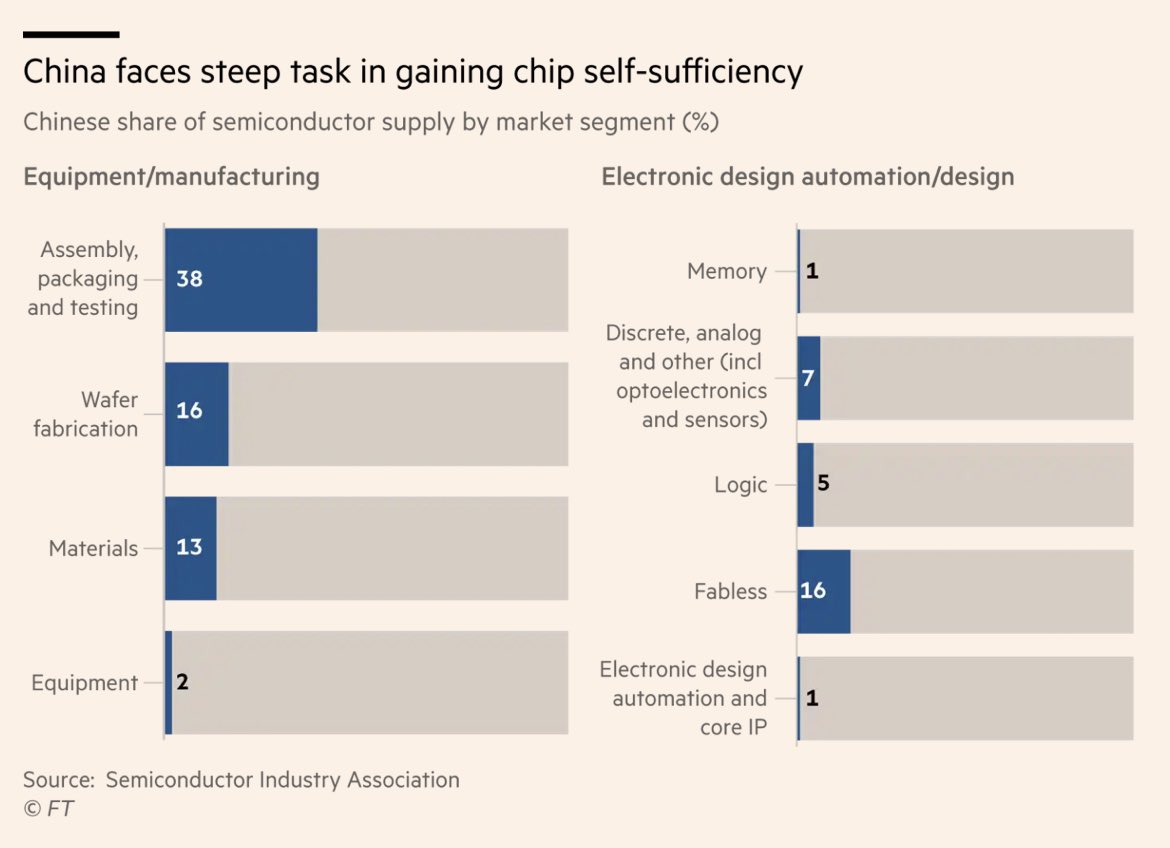
China is actively seeking to plug its gaps in the semiconductor supply chain, not an easy thing. But it does have a strange ally in this task: US venture capital firms. 22/25
wsj.com/amp/articles/u…

wsj.com/amp/articles/u…
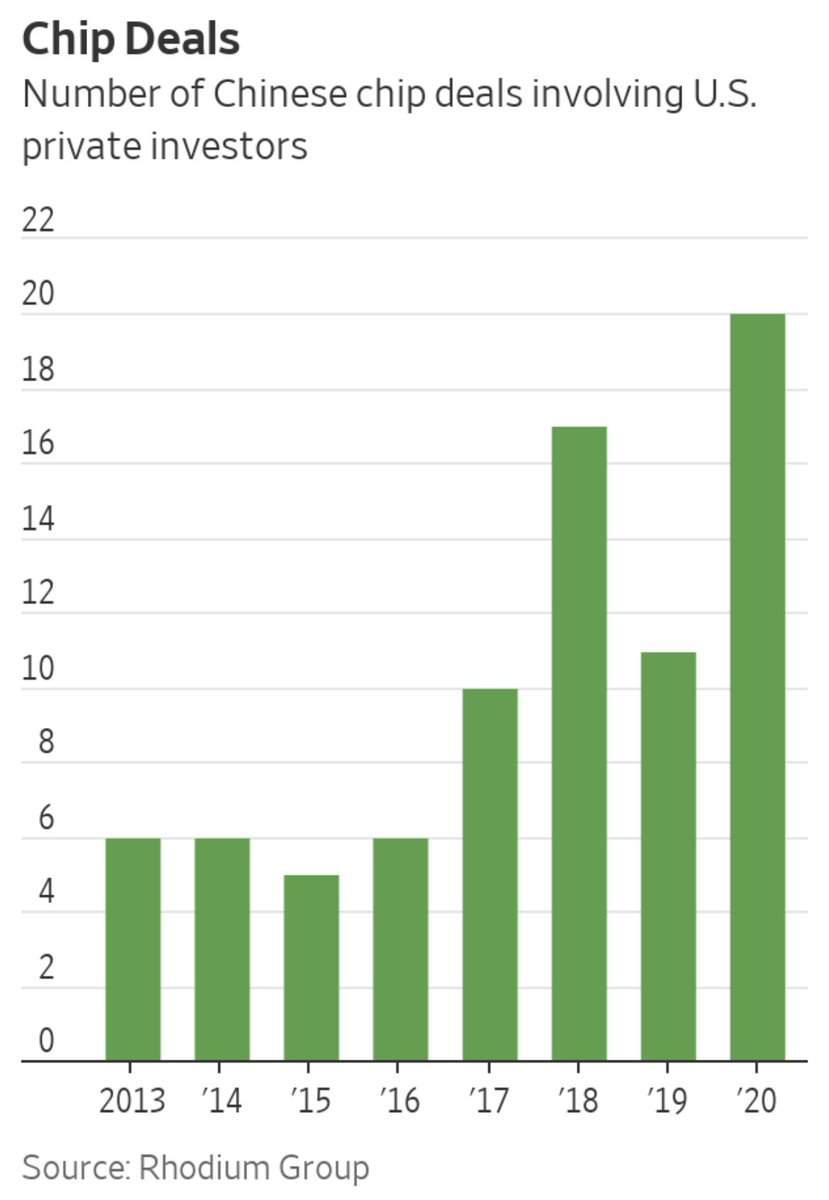
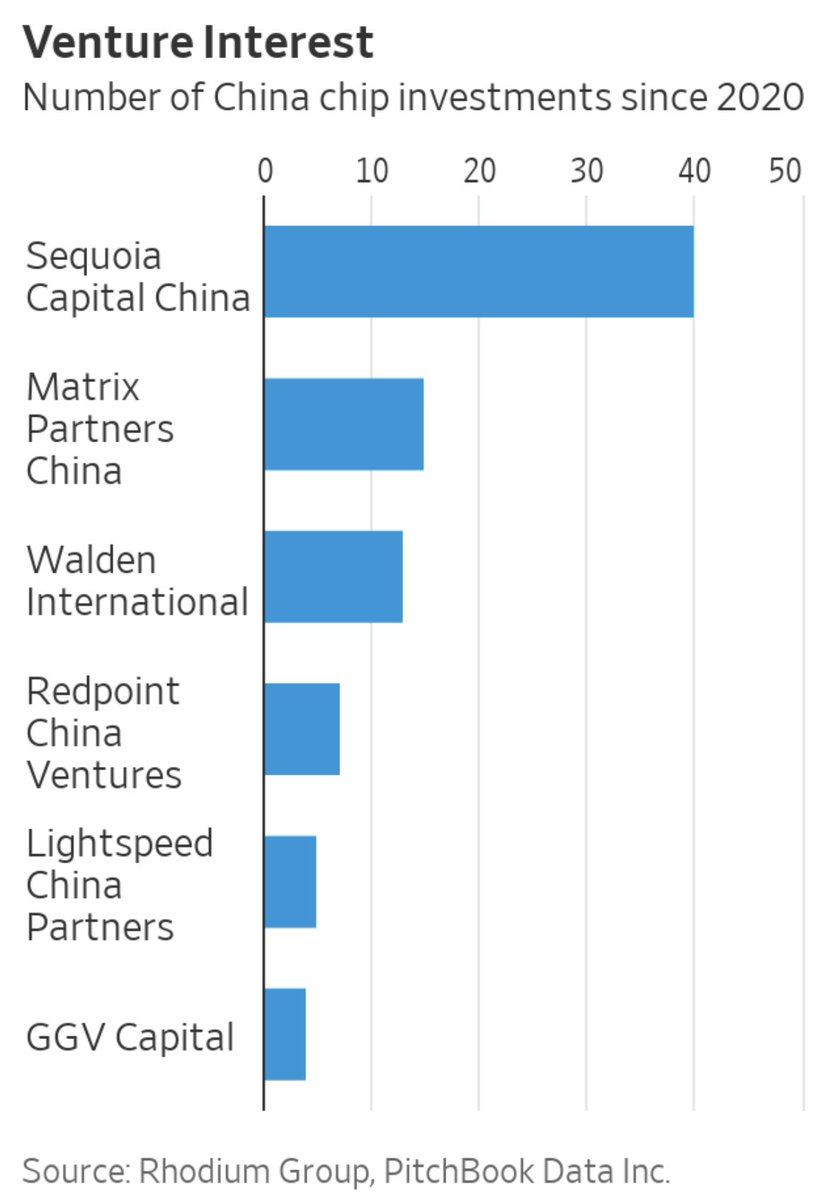
Warnings of Chinese science & tech supremacy have been coming from far & wide. In 2019, Michael Brown, the head of the DOD’s Defense Innovation Unit, warned publicly that China has a lead over the US in key tech domains listed in his slide below. 23/25
wsj.com/articles/china…

wsj.com/articles/china…
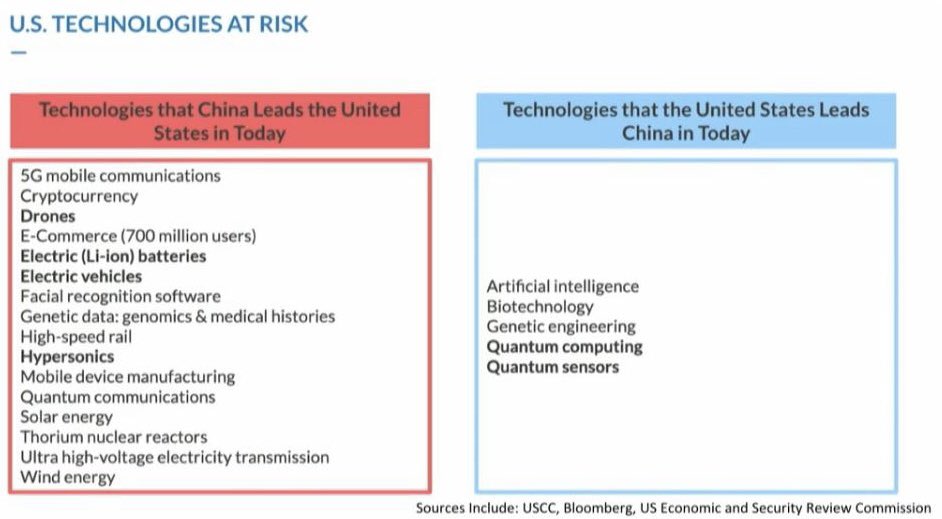

Former Google CEO @ericschmidt & Harvard’s @GrahamTAllison have published multiple books, reports and op-eds on the intensifying tech competition between the US & China. 24/25
wsj.com/amp/articles/c…
wsj.com/amp/articles/c…
In conclusion, China has achieved a level of science & tech sophistication that is significant & consequential, w/implications across multiple domains. To follow it further follow: @ericschmidt @EBKania @GrahamTAllison @cdbrose @TonyT2Thomas @elyratner @kaifulee @shashj
/ end
/ end
• • •
Missing some Tweet in this thread? You can try to
force a refresh

